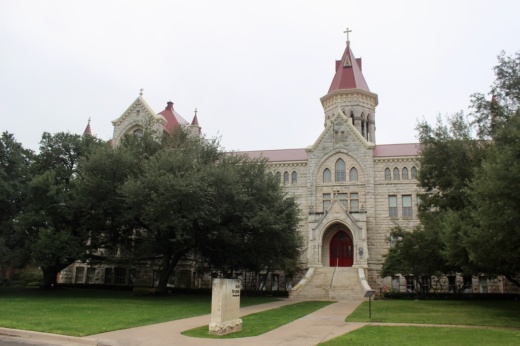The big picture
After years of informal work with multiple Central Texas colleges and universities, Austin moved this summer to set up official agreements with six Central Texas institutions including:
- Austin Community College
- Concordia University Texas
- Huston-Tillotson University
- St. Edward's University
- Texas State University
- The University of Texas at Austin
"[T]he agreements help us move from ad hoc interactions to a more intentional and equitable ecosystem—one where collaboration can thrive across many dimensions of City work," Purma said in an email.
Austin could spend up to $12 million over the next 5 years on new initiatives across all six institutions following City Council authorizations made Sept. 11. That would be pulled from individual city department funds as needed using "existing or budgeted resources" to support more streamlined and strategic partnerships, Purma said.
"By formalizing the relationships, the City and our university partners now have unified administrative processes, designated points of contact, and shared expectations—making it easier and faster to launch new initiatives," he said. "Just as important, these agreements open the door to non-research collaborations as well, such as workforce development, student engagement, technical advising, training, and community capacity-building."
The approach
Austin and UT have worked together on dozens of projects under a formal agreement launched in 2020. City financial officials reported those efforts represented nearly $8.5 million in value, and another $1 million-plus in new projects are now in development.
That's included research under the city's Vision Zero traffic safety program, a dashboard tracking major city roadways, long-range water modeling under the Water Forward plan and analysis of digital equity issues. City data and more details about Austin-UT projects can be found here.
Beyond UT, output under the formalized relationships could resemble some of the wide-ranging activity that's already taken place between the city and other institutions. Purma said the agreements now moving forward could help "track, streamline, and expand" on that work, which has included:
- Public safety and public health training, a fashion incubator, an open government partnership and the Austin Infrastructure Academy at ACC
- High school internships with Concordia
- Affordable housing navigation, vaccine research, a cultural survey and a lake capacity study with H-T
- A food access project with St. Edward's and Capital Metro
- Climate and public health service-learning projects with TXST
What's next
Specific projects advancing under the six new agreements haven't yet been identified, Purma said. However, he noted the subject-matter strengths of the different universities could inform next steps.
For example, he said ACC could continue to play a role in workforce development while TXST could be involved in equity and education access, collaborative research and the development of pilot programs. He also pointed to the "strong community ties" and research capacity at Concordia, H-T and St. Edward's. And at UT, he said projects now under consideration could center on city waterways, digital modeling, economic mobility and mobile community courts.
"While specific projects will continue to be scoped and funded by City departments as needs arise, this expanded framework makes it easier to build coordinated, responsive, and innovative partnerships across the board," he said.





